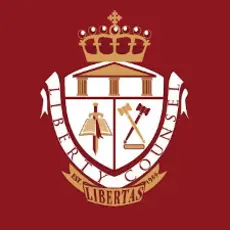There are few "mainstream" Religious Right activists operating today who are as militantly anti-gay as Matt Barber - in fact, he owes his entire current career to the fact that he got fired for being anti-gay.
And so now, in addition to using his position as Director of Cultural Affairs with Liberty Counsel from which to launch his incessant anti-gay attacks, Barber is also an Associate Dean at the Jerry Falwell-founded Liberty Law School.
And if you were thinking that this might just be some sort of administrative position, rest assured that it is not and that Barber is actually imparting his anti-gays views to LU students as an instructor, as he explained to Peter LaBarbera:
LaBarbera: So you're teaching a class there. What's the class about, real quickly ...
Barber: Yeah, I designed the curriculum and it's really an answer to the homosexual activist courses that we see at Harvard and Yale and Georgetown and other places. They call their class "Sexual Orientation and The Law"[and] they're basically just classes in which they indoctrinate kids; it's pure homosexual propaganda.
I teach a class, I designed the curriculum, and I taught it for the first time in the fall semester of this year title "Sexual Behavior and The Law" because that's what it really is is behavior. And I actually delve into the truth about how we have arrived where we are in the law today, we address public policy issues, legal issues and so forth from a Judeo-Christian perspective and looking at our true legal history and the true history of public policy in this country.
And indeed, the LU course catalog [PDF] reveals that that is indeed the case:
LAW 765 Sexual Behavior and the Law
A survey of the relationship between various types of human sexual behavior and law, including employment law, education law, criminal law, family law, civil rights legislation, and the constitutional guarantees of equal protection and freedom of religion, speech, and association. The course will explore sexual behavior and notions of sexual morality through a biblical, historical, and anthropological prism and consider how the law, public policy, and culture approaches the sexual choice people make.





